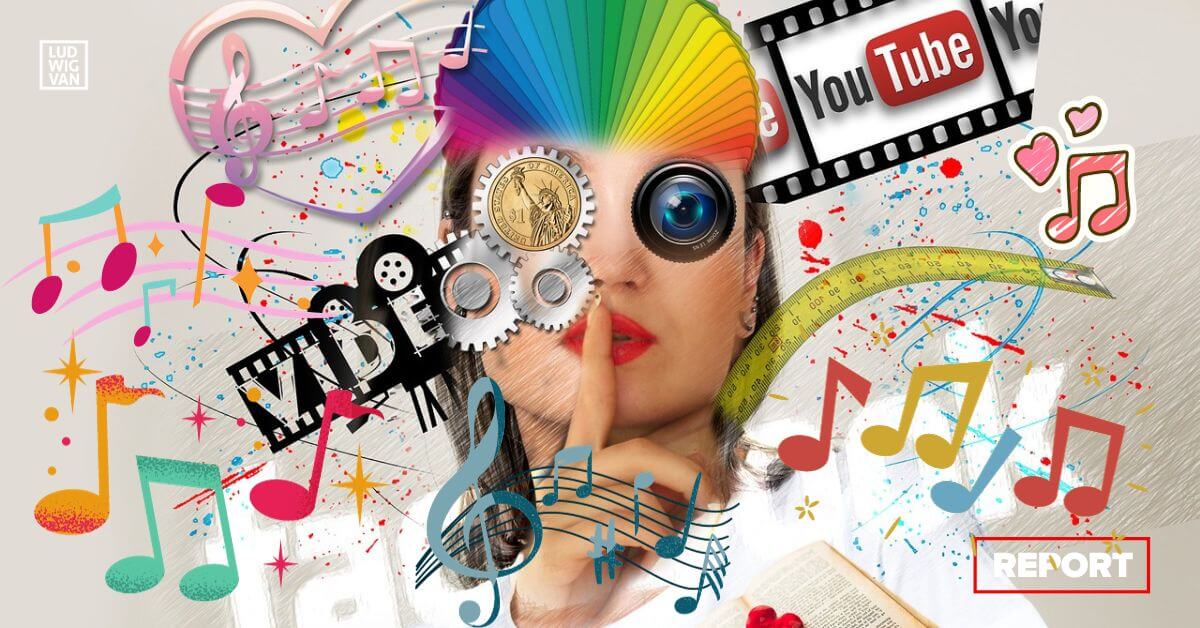
Classical music, in many respects, is an odd fit for the digital world. When it comes to classical music streaming, for example, the nature of the genre means that mainstream services like Spotify fall short when it comes to being able to find that perfect version of your favourite work.
Even setting aside the unprecedented issues that AI or artificial intelligence presents, copyright flags often result in video deletions where no legal issues actually exist. It’s a brave, and oh-so-complicated, new world out there.
Content Creators vs Musicians
DIY music videos on YouTube, TikTok and other online social media platforms can come from many sources, but they roughly break into two categories: content creators and the musicians themselves.
Content Creators
Anyone per se can create videos to post on the web, and add music from various sources. Here, copyright problems surrounding classical music often stem from confusion over the issues in play.
Currently, Canadian law protects a composer’s copyright for a period of their lifetime plus 70 years. That still, of course, leaves the works of many composers who died centuries ago.
That’s the crux, however — it’s only the work as they wrote it that is open to the public domain. Specific arrangements, for example, may not be.
Content creators tend to use work that is already recorded, however, and that opens up another side of copyright many people are not aware of.
- In Canada, sound recordings are copyright protected for a 50-year period from the date of fixation (or when the copyright took effect).
- The performer’s rights also enter into the picture, and are also protected for a 50-year period.
There are further complications in both cases depending on when the copyright was fixed, and when the law itself was issued.
So… the solution is to play the work yourself, right?
Musicians
The answer is, sadly, maybe yes, maybe no. There is no actual legal issue when a musician or ensemble plays, for example, the works of J.S. Bach, or Beethoven, or Mozart.
But, someone needs to explain that to the bots.
Because of a push to recognize copyright in online social media forums, platforms like Facebook and YouTube monitor the music in videos that are posted. Their algorithm compares the notes to the vast library of works in its catalogue, and then renders a verdict: copyright, yes or no.
It’s easy to see where the issue arises.
That catalogue consists of works that have been submitted by record companies and performing rights societies. The potential clash with classical musicians seems inherent. The bots can’t make the subtle distinctions between different recordings and renditions of the same work.
The Algorithm Is Always Right
When the pandemic first sent a wave of classical musicians online, the complaints first began to surface in numbers. You play Bach’s Sonata No. 1 in G minor, BWV 1001 for solo violin in a video that you post online, the bots flag it, and it’s silenced.
There is no human intervention, even at the appeal stage, to make sense of the ruling. What the bots decide, stays in force.
In an even more bizarre twist, a musician who plays work that they have previously recorded and released themselves (even original compositions) may find that the bots deem it a copyright violation — and there is no one to explain to that you’re the actual copyright holder.
It’s a Kafkaesque development that was clearly not anticipated by programmers, and, despite the passage of years, and any efforts to negotiate a different deal for classical musicians, is still taking place.
From professional musicians to student videos, posting a classical music video of your own work means taking a chance that it will be flagged, and the audio removed.
And online, there’s no one to hear you scream.
#LUDWIGVAN
Get the daily arts news straight to your inbox.
Sign up for the Ludwig van Daily — classical music and opera in five minutes or less HERE.
- INTERVIEW | Cultureland Presents A New Opera Steeped In Iranian Culture: Echoes Of Bi-Sotoon - May 10, 2024
- PREVIEW | Tapestry Opera Presents An Acadian Kitchen Party & Iron Chef Inspired Operatic Adventures To The Stage - May 9, 2024
- THE SCOOP | The Royal Conservatory Makes Koerner Hall More Accessible With My Piece Of The City Program - May 9, 2024



